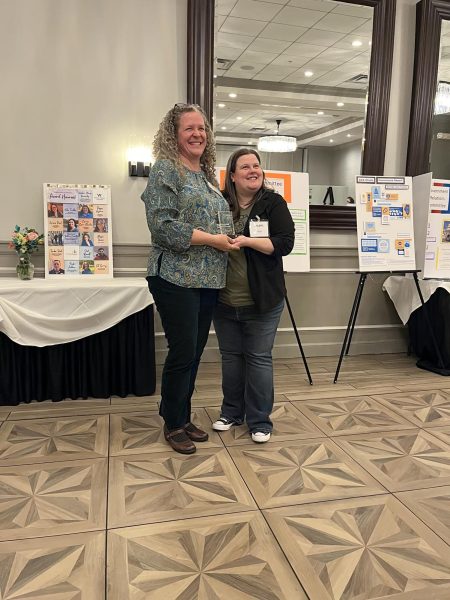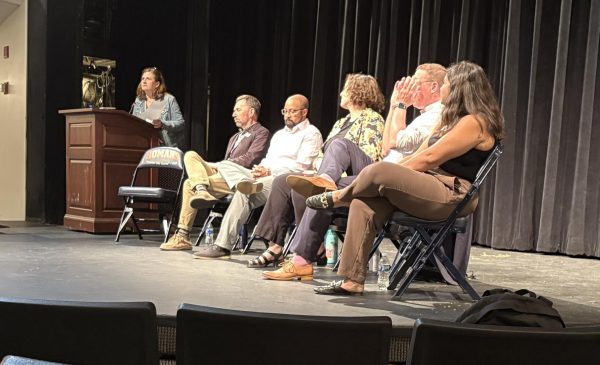Have Latin’s counselors been seeing changes in the mental health of students?
After almost a year in self-isolation, students at Latin have had to face many changes and adapt to a “new normal.” Schoolwork, it seems, often takes priority in students’ lives and is typically their main focus. However, with piling assignments and little to no social interaction, mental health often does not receive enough attention at Latin and beyond. With or without COVID, the teenage brain is extremely impressionable, especially as adolescents deal with social pressures, college stress, and extracurriculars. When teenagers are expected to pursue their goals from their bedrooms, an increase in anxiety levels may be inevitable.
Upper School counselor Jenny Stevens says the pandemic has caused an increase of stress and anxiety in students. “I would say that I have seen changes in student mental health because of the social isolation and lack of organized activities,” she said. Ms. Stevens went on to mention how quarantining is an unnatural behavior and how it is a difficult adjustment to make. “Adolescents are not meant to be home this much, especially with their parents or guardians,” she said. In fact, high school is a crucial time to form relationships and to spend time hanging out with friends.
Sophomore Sofia Uddin opened up about how quarantine has affected her mental health. She said, “I have noticed that my mental health has gotten worse, and I have noticed a decrease in my overall happiness.” She mainly attributes this to the lack of social interaction, just as Ms. Stevens predicted.
Ms. Stevens explained, “This sudden change in pace and the world coming to a standstill almost immediately was a shock to everyone’s system.” As a result of the lack of social interaction, she said, “People who have never had any anxiety and depression have experienced anxiety and depression.”
Ms. Stevens has tried to be a reliable source of comfort and reassurance in students’ lives in these unprecedented times. “I remind students that this too shall pass,” she said.
Adopting a different perspective, Ashley Lawrence, another Upper School counselor, noted that while many students have struggled, others have appreciated a break from their normal routines. “While some students have reported increased stress around lack of social contact and loss of ‘normal’ routine (sports, extracurriculars, travel, et cetera), other students have reported feeling less stress around social pressure and the demands of school, sports, extracurriculars.”
This issue is by no means unique to Latin. The American Civil Liberties Union of Southern California, which called teen mental health a “crisis” even before the pandemic, has revised their words to call it a “state of emergency.” The ACLU study, which surveyed students around California, found that 32% of high school students reported a notable increase in their mental health needs.
According to Richard Dickinson, the Middle School counselor, “protocols to increase safety have minimized opportunities for peers to authentically engage with each other, which is a mitigating factor against mental illness.” These issues are heightened when students are dealing with a challenging family life.
Dr. Dickinson continued, “Children with challenging family dynamics often seek support for their emotional challenges within the physical school building, and some of that support is now difficult to access.” Therefore, the students who typically rely on their teachers and counselors for guidance are now struggling even further due to the lack of mental health resources outside of school.
While there are many glaring issues with being isolated, Dr. Dickinson encouraged students to stay positive. Some students, he mentioned, have actually “thrived in relation to their mental health.” He advised students to get into a good routine.“Some students have reported that having a morning routine and an evening routine have mitigated the uncertainty that has accompanied this virus,” he noted.
Additionally, Dr. Dickinson reported that physical activity is particularly helpful for the mind and body. “Physical activity is a great way to mitigate stress and serves as a tool to fatigue the body and calm the mind.”
His final piece of advice was to minimize the amount of screen time that students and teens engage in. “Time away from devices allows the brain to rest and gives the person time to focus on being present and in the moment.” Dr. Dickinson also mentioned that, according to research, excessive screen time points to a clear negative correlation with a person’s happiness. “With that said,” he concluded, “I challenge students to be intentional and proactive in terms of seeking out activities that do not involve screen time in an effort to positively impact their own mental health.”
In terms of doing activities that benefit one’s mental health, sophomore Ainsley Heaton mentioned the importance of taking time for yourself and paying attention to your mental health. “I realized the importance of saying no to certain things if it means prioritizing your needs when struggling with mental health,” she said. Ainsley expressed her gratitude for “everyone who has supported me throughout my mental health journey.” It’s important to talk about your feelings and keep communications open with your loved ones, as high school students across the country are struggling right now and need to foster community.
























































